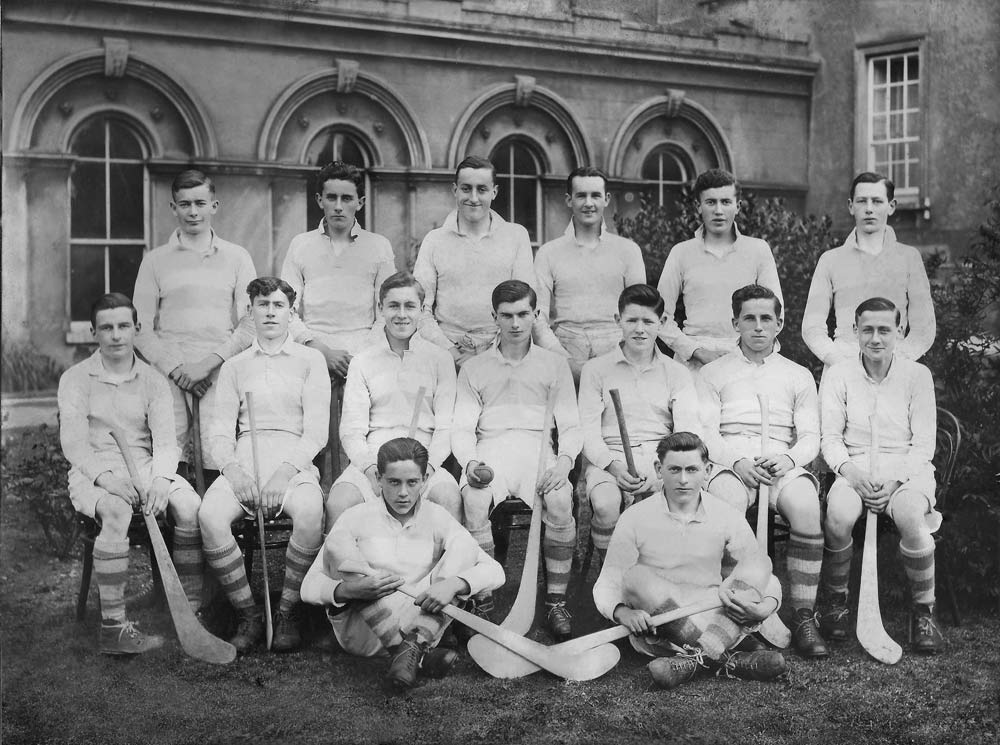Published in Sunday Independent – June 3rd 2018, Page 28
Lovely hurling at Blackrock? Surely there’s some mistake…
A golden era of hurling at a famous rugby school involved fine victories and big names, writes Brian O’Connell
In Ireland one school has long been synonymous with success in schools’ rugby – Blackrock College, which has nurtured Irish greats such as Brian O’Driscoll, Fergus Slattery, Niall Brophy and many, many more.
It may come as a surprise that for a time Blackrock excelled with ash-stick and sliotar – and that the story of hurling’s re-admittance to the school involved John Charles McQuaid, Eamon de Valera and the man who is perhaps best known for his role in the invention of Irish coffee and duty-free airport shopping: Brendan O’Regan.
O’Regan, who would go on to head Shannon Development and Bord Failte, came as a 14-year-old boarder to Blackrock in 1931. He was from a strong GAA household, his father having been chairman of the training committee for the Clare hurling team that won their first All-Ireland in 1914 – also the first final to be played in the newly renamed Croke Park.
Most of the Blackrock pupils at the time were boarders, with more boys enrolled from Munster than Dublin. For many of those from counties such as Clare, hurling had been their sport before coming to Dublin.
During his first year O’Regan, displayed some of the courage and initiative he would later become noted for. He rounded up some of his schoolmates to meet the college president and requested that Blackrock enter a team in the Leinster Colleges’ hurling competition which the school had dropped out of several years earlier. The president was none other than the formidable Dr John Charles McQuaid, who would later serve as Archbishop of Dublin for more than 30 years.
McQuaid had to give this request some careful consideration. The controversial GAA ban on those playing and even attending games of rugby, soccer, cricket and hockey, which ruled out participation by such individuals in Gaelic games, was very much a live issue at the time.
Blackrock’s most famous alumnus, Eamon de Valera, once said that, “there is no football game to match rugby”. However, being a consummate politician, Dev had not attended a rugby match since 1913, as he “did not want it being raised as a political matter and having rows kicked up about it”. De Valera’s own government had just introduced an entertainments tax on attendance receipts at sports such as soccer and rugby, but had exempted Gaelic games.
McQuaid approved the request from O’Regan and his young colleagues – and his decision was received positively in GAA circles. One senior GAA official asserted that “the return of Blackrock to the national pastime is a healthy sign of Gaelic virility”.
A junior team with O’Regan on board entered the Leinster Colleges’ hurling competition in 1932-33 and so began a golden era for hurling in Blackrock.
O’Regan threw himself enthusiastically into the game and featured on the school’s junior and senior hurling teams. On the junior team he shared the wing forward duties with Eamon de Valera’s son, Rory. Blackrock juniors swept all before them in their first year, winning the 1933 Leinster Colleges’ cup. The following year a senior Blackrock team was entered and while they did not win the championship that year, seven Blackrock players featured on the 1934 Leinster Colleges’ Senior team in the interprovincial championship.
In the senior campaign of 1934-5, O’Regan was one of the goal-scorers in a victory over reigning champions, Colaiste Caoimhin, Glasnevin, at Croke Park. However, he did not play in the final where Blackrock defeated a team from the renowned hurling nursery, St Kieran’s, Kilkenny, by five points. So, Blackrock had won the junior and senior trophies in their first three years.
Blackrock reached the senior colleges final again in 1936, against Kilkenny CBS, with O’Regan at centre-field. However, Jim Langton – one of the greatest hurlers of all time – won this game for Kilkenny on his own. A week later, O’Regan was one of four Blackrock boys who togged out with Langton on the Leinster Colleges team against Munster.
The era of hurling success did not have any effect on Blackrock’s dominance of Leinster Schools Rugby. In 1936, when the 50th senior cup was at stake, the senior team completed a four-in-a-row. This meant that since the competition began in 1887, Blackrock had won the trophy 33 times, or twice as often as all the other schools combined.
Blackrock’s successful involvement in inter-collegiate hurling lasted for less than a decade.
After heavy defeats in the senior competition in 1937 and 1938 and the transfer of some of the priests who had been hurling coaches, interest would appear to have declined. By 1942, the school had dropped out of intercollegiate hurling and the golden era was over.
O’Regan left Blackrock in 1936 to pursue overseas training as a hotelier. His initiatives in tourism and industry would transform the Shannon region and have national and international impact over the coming decades.
Brian O’Connell is the author of “Brendan O’Regan: Irish Innovator, Visionary and Peacemaker”, published by Irish Academic Press.
